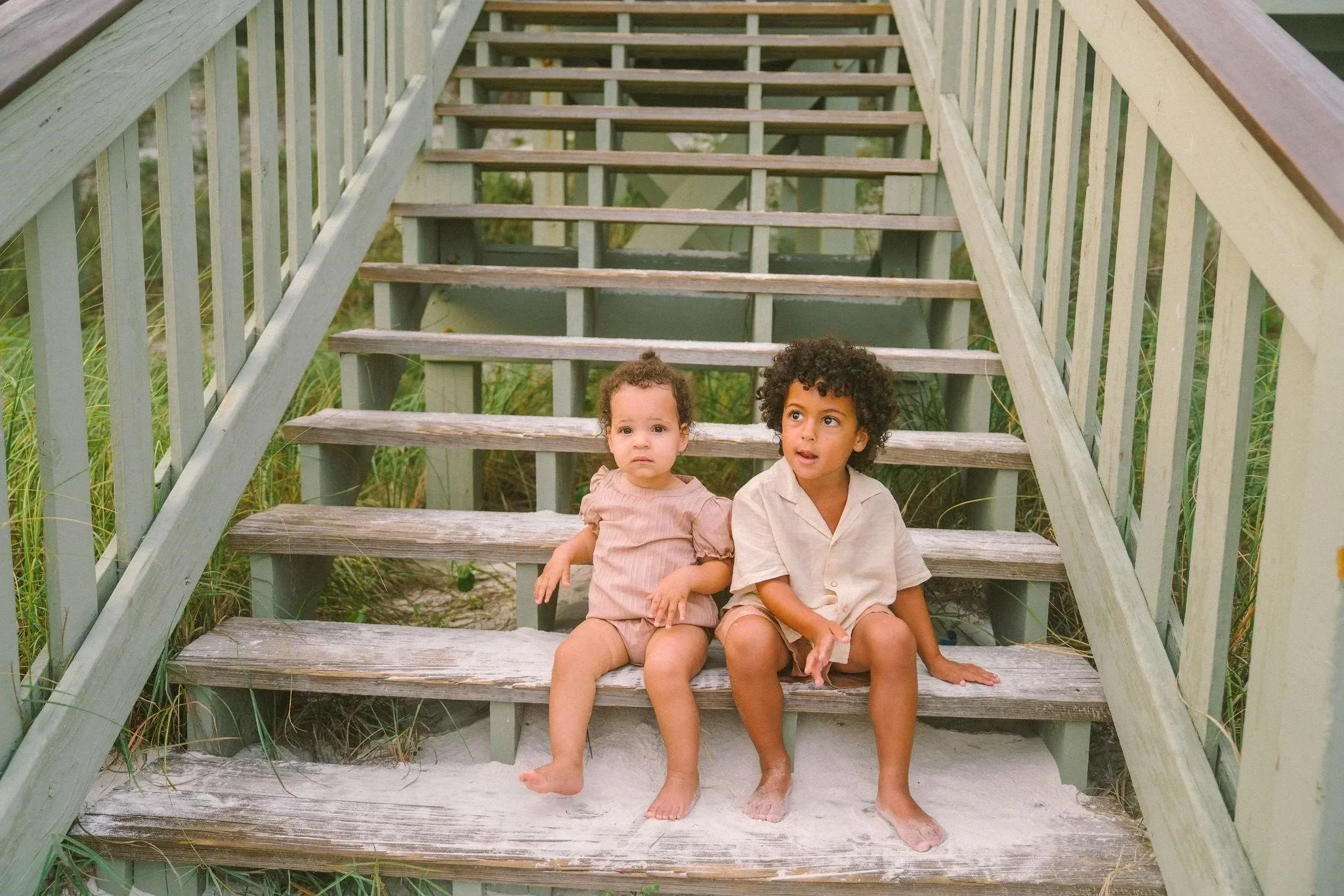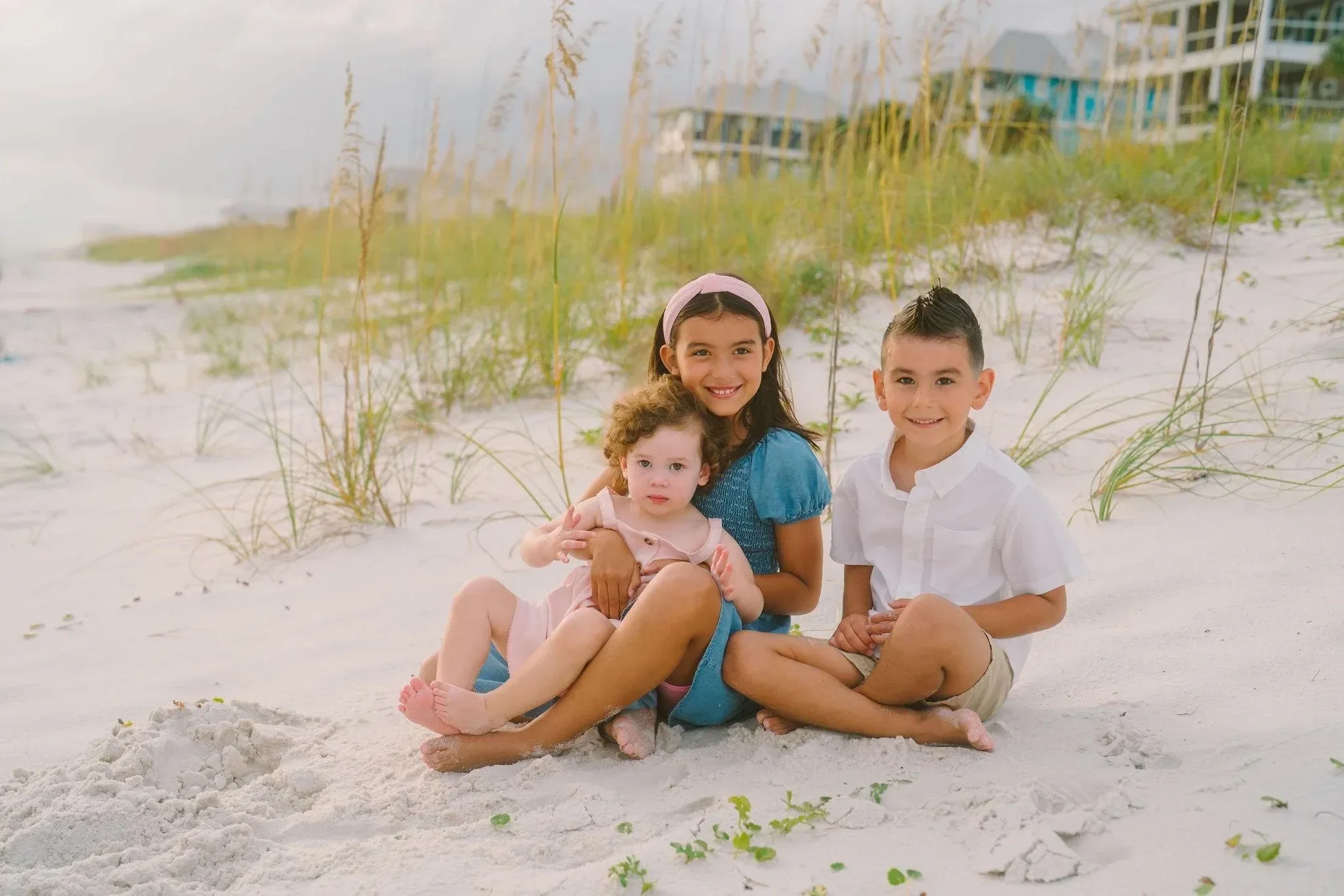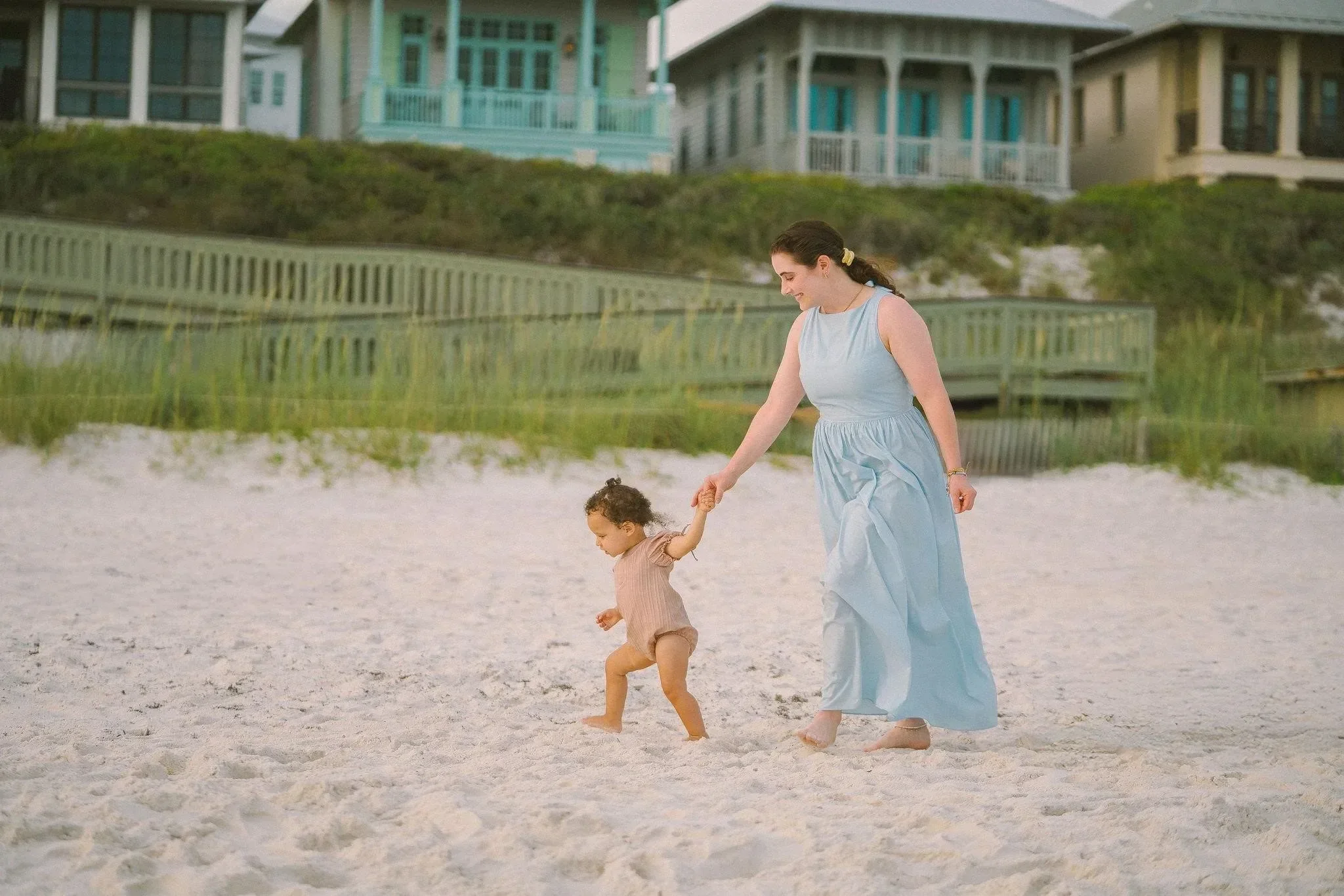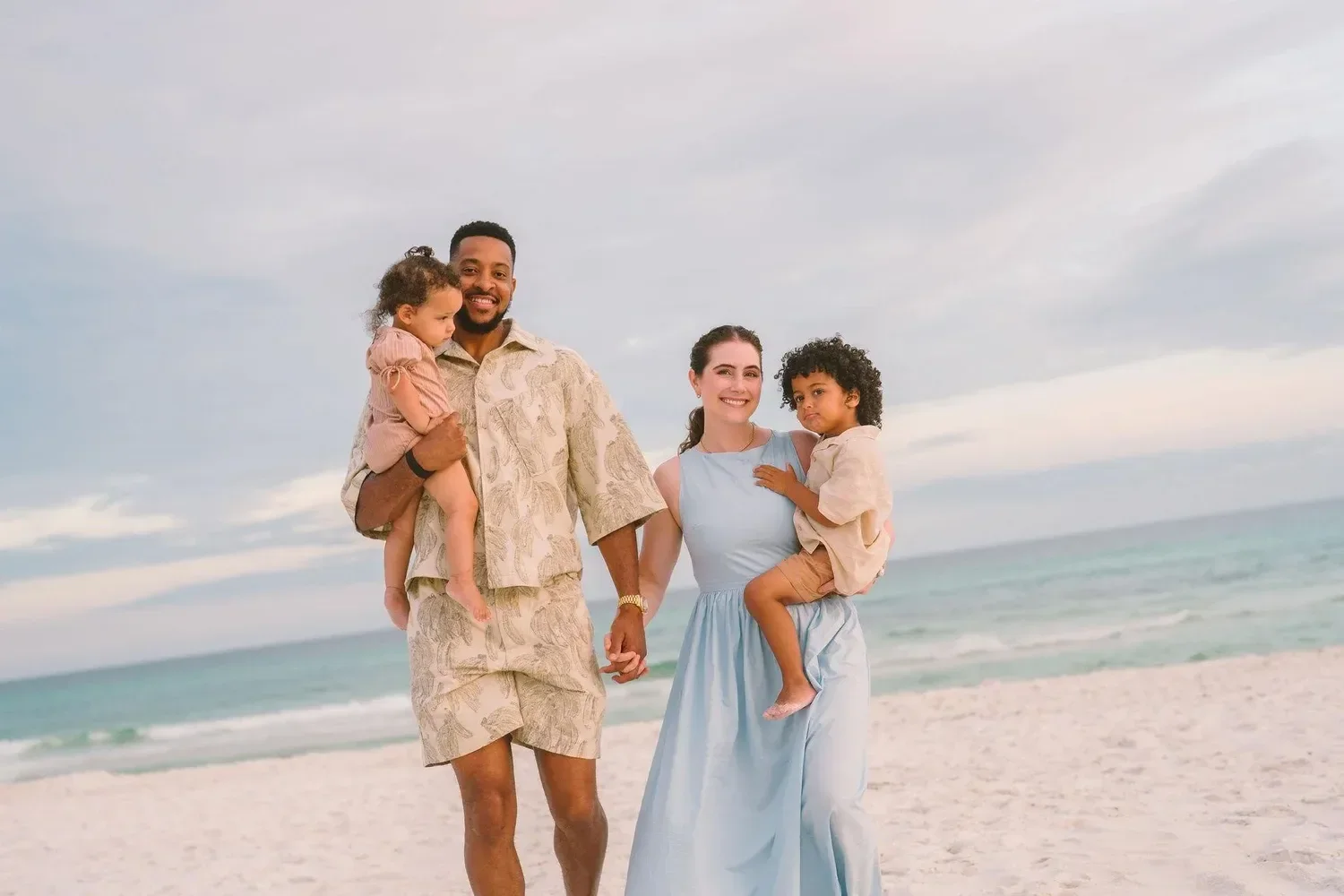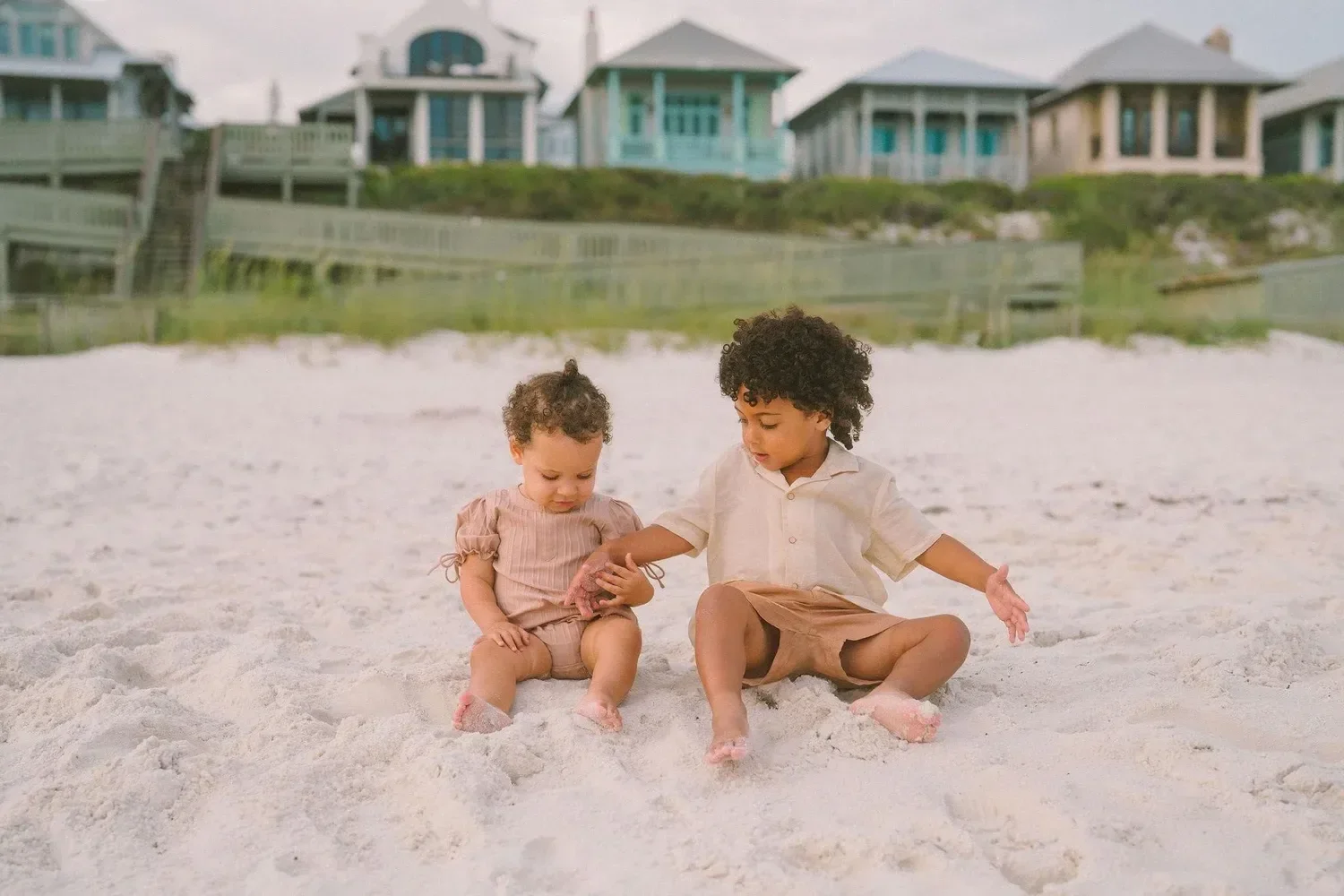How To Prep Kids For A Stress Free Beach Session Day
We’ve photographed countless sandy toes and sun tipped hair, and we’ve learned that calm beach sessions are built long before anyone steps on the sand. A stress free photo day starts with rhythms your kids already know. It continues with thoughtful prep and realistic timing. It finishes with simple choices that make everyone feel comfortable and seen. We wrote this with our Pure7 Studios families in mind and for parents who want the photos to feel like real memories, not a production.
A Gentle Plan That Fits Your Family
What To Wear So Kids Can Move And Still Look Polished
Pack Light So Hands Stay Free
Timing That Respects Naps, Attention, And Light
Posing Kids Without Making It Feel Like Posing
Anchors That Keep Kids Calm
Weather And Wind Are Not The Enemy
Shoes, Sand And Small Comforts
Location Choices That Match How Your Family Plays
A Small Note On Coordinating Outfits
The Session Itself
After The Session
Bringing It All Together
FAQs
A Gentle Plan That Fits Your Family
We always recommend starting by picturing the day through a child’s eyes. What would make this feel like play instead of a task? Build the plan for the day of your photoshoot around that. We recommend to avoid stacking a full day of activities before your photos. If a morning at the pool is on the schedule, we shift the session to another day. Families who give kids calm lead ups arrive relaxed and curious, which shows in every frame.
We also pay close attention to the light. Golden hour is gentle and flattering. Along the Gulf Coast that usually falls near dinnertime, so we recommend a snack window or early bite before heading out. A few crumbs are better than tired, hungry faces. Snacks smooth out the transition between afternoon play and evening photos, keeping moods steady and smiles real.
What To Wear So Kids Can Move And Still Look Polished
Clothing is a comfort decision first. Kids move better in soft fabrics that breathe and flow. We recommend avoiding stiff collars and loud prints. Light neutrals and coastal tones; cream, sand, sky blue, blush, sage, work beautifully against the shore. These shades photograph naturally without competing with the surroundings. Most importantly, don’t make the kids wear something they dislike - as that disdain will certainly come though in the photos.
Also be prepared for the wind. The beach has its own personality, and breezes can change quickly. Simple hair ties or clips can save time between shots. Outfits do better without ruffles and bows at the neckline and shoulders that can blow up in the wind. Makeup for older kids should be light and shine free. And one small but vital note; skip lotion right before heading into the sand. It clings to every grain and can turn cleanup into a battle.
Pack Light So Hands Stay Free
A simple bag makes the whole day easier. We recommend bringing a wide open tote with quick dry towels, snacks (if needed for kids), water bottles, wipes, and a small first aid kit. A soft blanket doubles as a seat and backdrop.
For toddlers, we recommend bringing a familiar toy or small stuffed animal. It calms nerves and sometimes ends up being part of the story in the photos. A neutral throw, a small brush, a few hair ties, and a microfiber cloth are our essentials. Less clutter keeps focus where it belongs, on connection and play.
Timing That Respects Naps, Attention, And Light
For infants and toddlers who nap, please don’t skip their nap on photoshoot day. Arriving early allows everyone to explore and get used to the sand before the first photo. Those first ten minutes of curiosity are often the key to relaxed smiles later.
We also stay flexible. Tide, wind, and light shift by the hour. If the breeze is strong near the waterline, we may start by the dunes or boardwalk, then move closer to the waves when it calms. Kids mirror our energy, so we stay calm and steady even when plans adjust.
Posing Kids Without Making It Feel Like Posing
We always ask ourselves one simple question, what would these kids do right now if there were no camera? That question shapes how we work. We invite and encourage movement, particularly at the end of the session - running to the waterline, collecting shells, twirling, or chasing waves. Those actions naturally open into candid moments we can capture beautifully.
When we do pose, we keep it soft. Shoulder to shoulder for simple groups. A seated triangle on a blanket for toddlers. Switching focus often; siblings together, parents with each child, everyone in one big laugh pile, keeps kids from fading out.
Weather And Wind Are Not The Enemy
We remind every family that clouds are a gift. Soft light means fewer squints and even tones. A light sprinkle can even bring magic to the sky once it clears. If wind picks up, we adjust locations or embrace the movement. Braids and ponytails can save the day, and a little motion in clothing adds life to the photos.
Shoes, Sand And Small Comforts
Bare feet almost always win. They read natural and carefree. If someone prefers sandals, we keep them simple. Before heading home, we brush sand off with a small towel and skip lotion until later. It makes cleanup quick and painless.
Location Choices That Match How Your Family Plays
Every family interacts with the beach differently. Some need wide open space to run, others love quiet dunes and paths. We scout both. One boardwalk might lead to an open horizon; another might curve into a cozy cove. Along 30A, we’ve found that each setting carries its own tone.
A Small Note On Coordinating Outfits
Parents often ask if everyone should match. We recommend loose coordination instead of strict matching. Two or three tones from a soft palette work best, mixing textures so each child’s personality shows. Those natural tones; cream, linen, blush, soft blue, tie the family together without feeling staged.
High saturation and neon tones reflect light onto skin and can overpower expressions. We choose simplicity and comfort: cotton dresses that move, linen shirts, soft shorts. Clothes that let kids run, laugh, and be themselves always photograph best.
The Session Itself
When session time arrives, we begin slowly. We take a few traditional frames first while everyone’s fresh, then we shift into natural prompts. Walk to the water, stop, look at each other, share a secret about what comes after. These small moments build real laughter and connection.
If energy dips, we change focus. One child steps in with a parent while another rests. Teens get their own space before coming back in. The rhythm stays flexible. We don’t force perfect stillness; we guide genuine interaction.
After The Session
We love when families plan something small afterward. Ice cream, a walk, or an evening swim keeps the mood light and turns the photo day into a fun memory. Kids start to associate photo sessions with joy, and next time, half the work is already done.
Bringing It All Together
A stress free beach session isn’t a miracle. It’s a mix of planning, patience, and connection. Choose clothes that let kids play, build extra time for snacks and breaks, and accept a little wind as part of the charm. When families lean into the moment and trust the process, their photos radiate ease and authenticity.
FAQs
What time of day works best for kids on the beach?
Golden hour (the hour before sunset) is ideal because the light is soft and warm and not as harsh as mid-day sun on our white, reflective quartz sand beaches.
What colors should we choose for children’s outfits?
Soft neutrals and coastal tones like sand, cream, blue, and blush work beautifully. We skip bright neon shades because they reflect color onto skin. We offer full wardrobe consulting at your planning appointment as well!
How do we handle wind and messy hair?
We recommend having small hair ties and clips on hand and we will choose more sheltered spots when needed. A loose braid or bun keeps the focus on faces and emotions.
What should we pack that families often forget?
Simple, non-messy snacks, water, wipes, a small brush, and a neutral blanket. A light, organized bag keeps everything easy to reach.
Is there anything we should avoid dressing kids in during water play?
Yes, pale blues and light pastels can blend with the ocean. We prefer deeper or brighter colors that stay visible in the surf.
Capture Calm, Joyful Beach Memories With Ease
→ Create a relaxed, fun atmosphere for your family’s beach session with simple preparation tips that keep kids happy and carefree
→ Enjoy authentic, laughter filled moments that show your children’s real personalities against the beauty of the coast
→ Perfect for families who want natural, timeless portraits that tell your story, not forced poses
Book your family beach session and enjoy a stress free day by the sea →
★★★★★ Rated 5/5 by 119 clients who trust us to capture their most important moments
Related Articles


